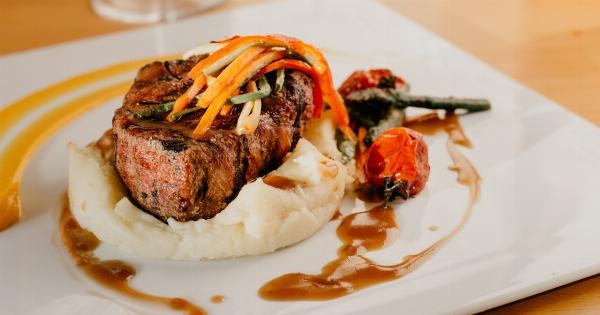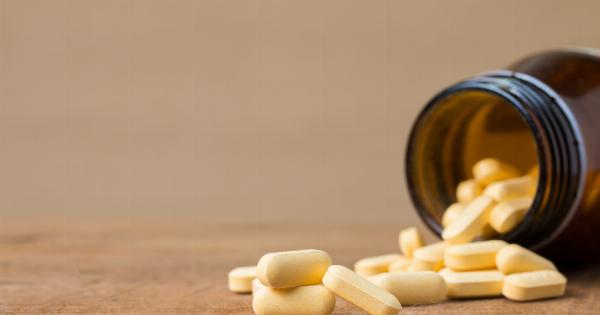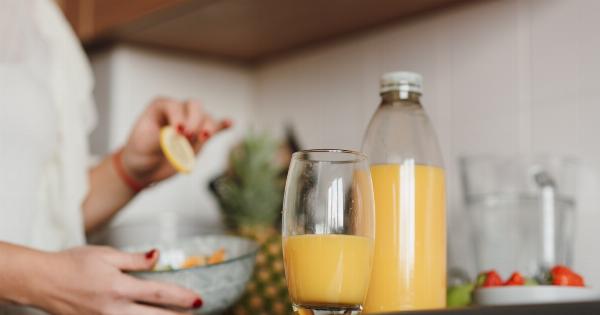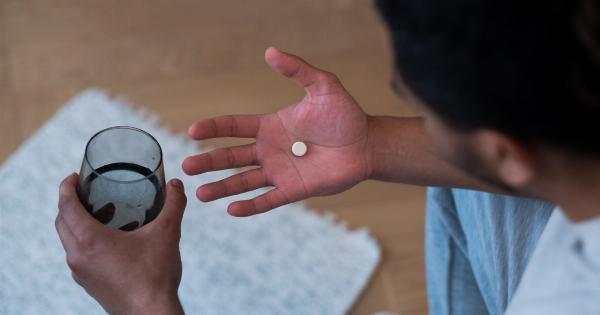If you’ve ever gone out for a night of drinking with friends, you’ve likely heard the old adage, “beer before wine, you’ll feel fine.
Wine before beer, you’ll feel queer.” But is there any truth to this popular belief that the order in which you consume alcoholic beverages can impact your likelihood of experiencing a hangover the next day? In this article, we’ll take a closer look at the science behind the “beer before wine” strategy and whether or not it actually works.
The Science of Hangovers
Before we can explore whether or not “beer before wine” is an effective hangover prevention strategy, it’s important to understand what causes hangovers in the first place.
Unfortunately, science still hasn’t fully uncovered what causes hangovers, although there are several theories. Some experts believe that dehydration plays a role, while others think that the toxic byproducts of alcohol breakdown in the liver are to blame.
There’s also a theory that inflammation and changes to the body’s immune system could contribute to hangover symptoms.
Despite the lack of a clear cause, we do know that certain things make a hangover more likely, such as drinking too much alcohol, drinking on an empty stomach, and consuming drinks that are high in congeners, which are toxic substances produced during fermentation.
The “Beer Before Wine” Theory
So, where did the “beer before wine” theory come from, and is there any truth to it? The belief that drinking beer before wine can prevent a hangover is rooted in the idea that beer has a lower alcohol content than wine and is therefore a good way to pace yourself. If you start with beer and then switch to wine later in the night, the thinking is that you’ll be less likely to drink too much too quickly and will be able to avoid a hangover as a result.
However, despite its popularity, there’s actually very little scientific evidence to support the idea that “beer before wine” can prevent a hangover.
In fact, many experts say that the order in which you consume alcohol doesn’t have much impact on your likelihood of experiencing a hangover.
What Does the Science Say?
One study, published in the American Journal of Clinical Nutrition, set out to test the “beer before wine” theory by comparing the hangover symptoms of subjects who drank wine before beer to those who drank beer before wine.
While the study did find that people who drank wine before beer reported slightly worse hangovers overall, the difference was very small and likely not significant in terms of how people actually feel the next day.
Another study, published in the Journal of Clinical Medicine, found that people who drank clear liquor like vodka or gin tended to experience fewer hangover symptoms than those who consumed darker liquors like whiskey or rum.
This suggests that the type of alcohol you consume could have a greater impact on your likelihood of developing a hangover than the order in which you drink it.
Other Hangover Prevention Strategies
While there may not be a surefire way to prevent a hangover, there are several strategies you can try to reduce your likelihood of experiencing one. Some effective hangover prevention techniques include:.
Drink Plenty of Water
Alcohol is a diuretic, which means that it can cause dehydration. Drinking plenty of water before, during, and after a night of drinking can help you stay properly hydrated and may reduce your risk of experiencing a hangover.
Eat a Good Meal
Drinking on an empty stomach can make you more susceptible to a hangover, so it’s important to eat a balanced meal before you start drinking. It may also be a good idea to snack on something throughout the night to keep your blood sugar levels stable.
Take Supplements
Certain vitamins and minerals, such as vitamin B6, magnesium, and zinc, can help your body process alcohol more efficiently and may reduce your risk of developing a hangover.
Consider taking a multivitamin or another supplement before bed to help support your body’s recovery.
Avoid Drinks High in Congeners
Congeners are toxic substances produced during fermentation that can contribute to the severity of a hangover.
If you’re trying to prevent a hangover, it’s a good idea to avoid drinks that are high in congeners, such as red wine, dark beer, and whiskey.
The Verdict
There’s no denying that hangovers are an unfortunate side effect of drinking alcohol, but there’s little evidence to suggest that the order in which you drink your beverages has any real impact on the severity of your symptoms.
While it’s not a bad idea to start with a lower-alcohol beverage like beer in order to pace yourself, it’s more important to drink in moderation and to take steps to reduce your risk of experiencing a hangover in other ways, such as staying hydrated and choosing drinks low in congeners.




























